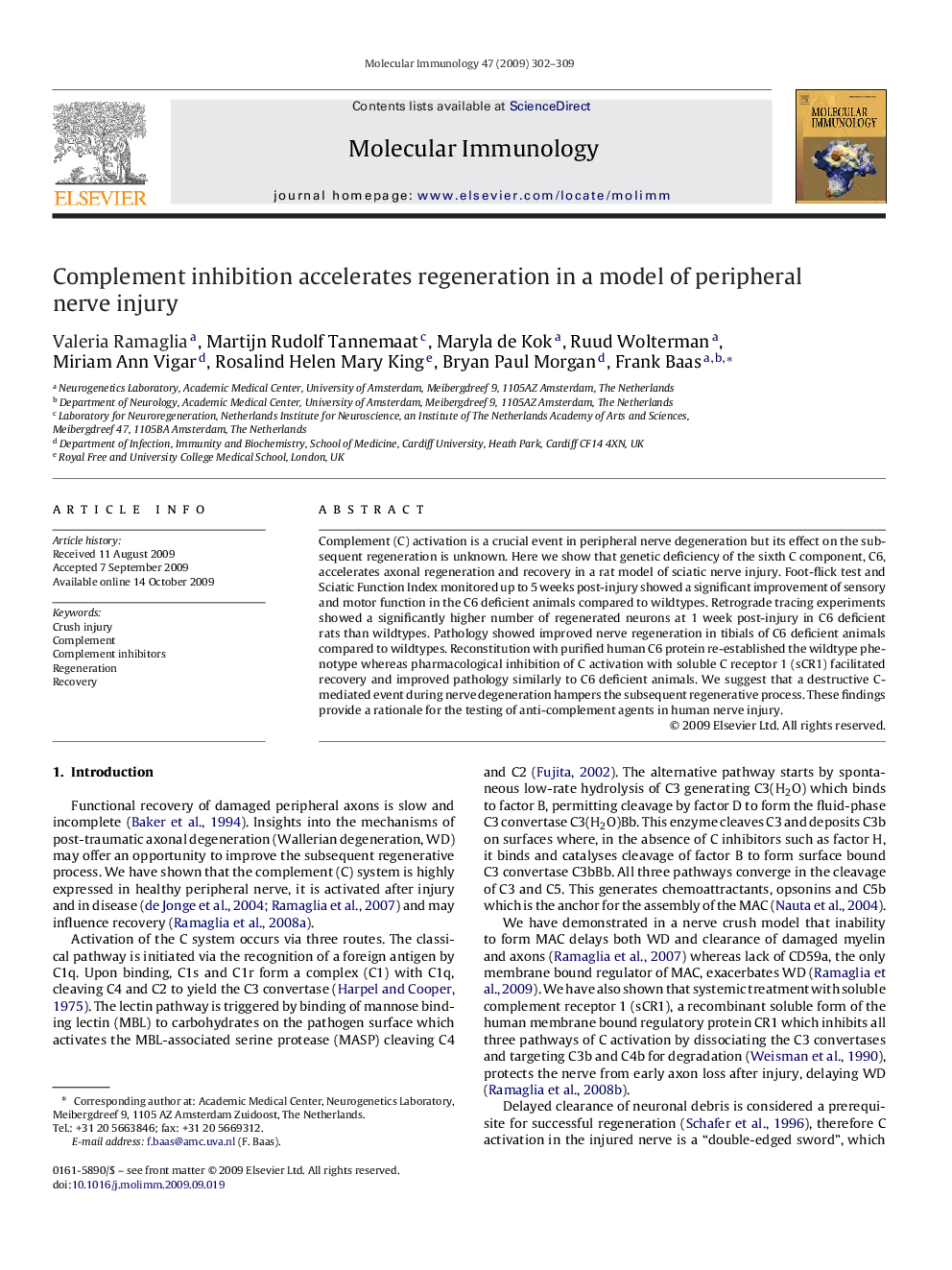| Article ID | Journal | Published Year | Pages | File Type |
|---|---|---|---|---|
| 5917592 | Molecular Immunology | 2009 | 8 Pages |
Abstract
Complement (C) activation is a crucial event in peripheral nerve degeneration but its effect on the subsequent regeneration is unknown. Here we show that genetic deficiency of the sixth C component, C6, accelerates axonal regeneration and recovery in a rat model of sciatic nerve injury. Foot-flick test and Sciatic Function Index monitored up to 5 weeks post-injury showed a significant improvement of sensory and motor function in the C6 deficient animals compared to wildtypes. Retrograde tracing experiments showed a significantly higher number of regenerated neurons at 1 week post-injury in C6 deficient rats than wildtypes. Pathology showed improved nerve regeneration in tibials of C6 deficient animals compared to wildtypes. Reconstitution with purified human C6 protein re-established the wildtype phenotype whereas pharmacological inhibition of C activation with soluble C receptor 1 (sCR1) facilitated recovery and improved pathology similarly to C6 deficient animals. We suggest that a destructive C-mediated event during nerve degeneration hampers the subsequent regenerative process. These findings provide a rationale for the testing of anti-complement agents in human nerve injury.
Related Topics
Life Sciences
Biochemistry, Genetics and Molecular Biology
Molecular Biology
Authors
Valeria Ramaglia, Martijn Rudolf Tannemaat, Maryla de Kok, Ruud Wolterman, Miriam Ann Vigar, Rosalind Helen Mary King, Bryan Paul Morgan, Frank Baas,
